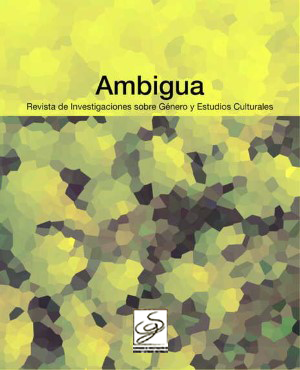Mecano: modernidad y discursos de género en el pop español de los ochenta
Keywords:
chanson de femme; lírica medieval; literatura comparada; folklore; poesía oral; mujer; visibilidad.Abstract
Mecano was a successful pop band formed by Cano brothers, José María and Nacho, and the vocalist Ana Torroja. Mecano stood out within the Spanish popular music scene due to a high level of sales and listeners, as well as for being a Spanish eighties’ icon. The band began with a British-pop style, widely influenced by new wave and new romantics artists. Mecano also added clichés to its works associated with Spanish culture, easing the connection with the Spanish youth. The main goal of this research is to analyse how Mecano reflected new wave´s discourse of modernity, which also permeated cultural phenomenon known as Movida. On gender issues, Mecano presented a new romantics discourse, namely, an interesting proposal that can be defined as queer, according to Jorge Pérez (2014). In the development of this research, I have used an interdisciplinary methodology that joined fields of gender studies (Halberstam), cultural studies (Grossberg) and popular music studies (Cateforis). For the analysis I have taken songs such as No es serio este cementerio, Hijo de la luna or Mujer contra mujer, and paying special attention to musical, textual and visual elements. Likewise, I contrasted Ana Torroja's queer gender identity proposal with Alaska’s approach, also a Spanish eighties’ popular culture icon. Mecano aimed to display issues such as homosexuality or female empowerment within the frame of Spanish popular music. Thus, the band articulated and reflected the political and cultural changes taking place within Spanish society at that time.
Downloads
Downloads
Published
How to Cite
Issue
Section
License
The authors agree with the following:
1. Authors retain copyright and grant the journal right of first publication with the work simultaneously licensed under a license Attribution-NonCommercial-ShareAlike 4.0 International (CC BY-NC-SA 4.0) that allows others to share the work with an acknowledgement of the work's authorship and initial publication in this journal.
2. Authors are able to enter into separate, additional contractual arrangements for the non-exclusive distribution of the journal's published version of the work (e.g., post it to an institutional repository or publish it in a book), with an acknowledgement of its initial publication in this journal.
3. Authors are permitted and encouraged to post their work online (e.g., in institutional repositories or on their website) prior to and during the submission process, as it can lead to productive exchanges, as well as earlier and greater citation of published work (See The Effect of Open Access).









